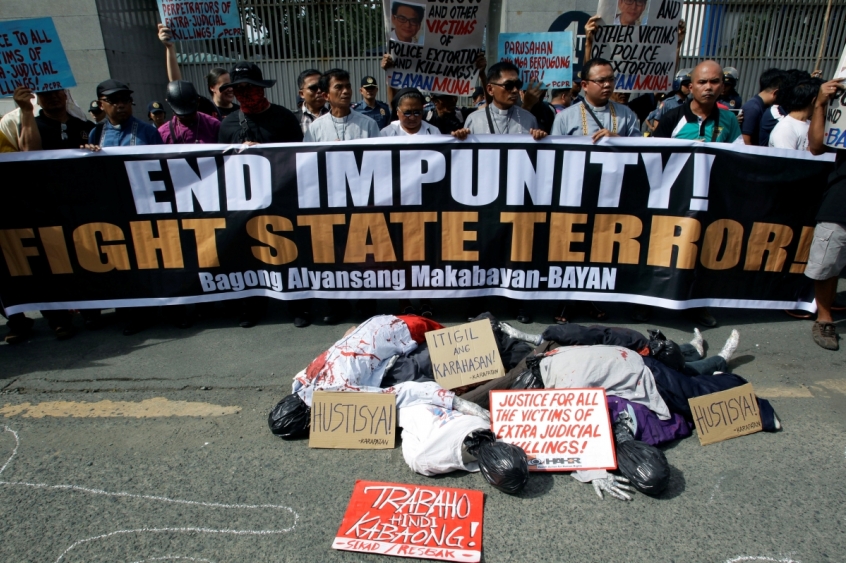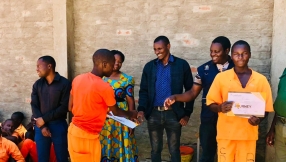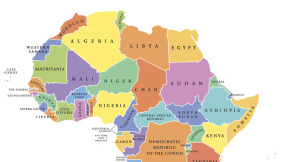
The Catholic Church in the Philippines mounted its strongest attack yet on President Rodrigo Duterte's alleged policy of encouraging the killing of drug dealers and users, with sermons read out in its churches at the weekend denouncing the practice.
The Catholic Bishops' Conference of the Philippines said killing people was not the answer to trafficking of illegal drugs, and it was disturbing that many didn't care about the bloodshed, or even approved of it.
"An even greater cause of concern is the indifference of many to this kind of wrong. It is considered as normal, and, even worse, something that (according to them) needs to be done," the bishops said in a pastoral letter, a copy of which was obtained by Reuters.
"An additional cause of concern is the reign of terror in many places of the poor. Many are killed not because of drugs. Those who kill them are not brought to account," they said.
Duterte came to power with a pledge to deal with the Philippines' drug scourge by any means necessary. More than 7,600 people have died since he launched his anti-drugs campaign, more than 2,500 in what police say were shootouts during raids. Both the government and police have strenuously denied that extrajudicial killings have taken place.
The bishops's letter urged "elected politicians to serve the common good of the people and not their own interests" and called for steps to tackle "rogue policemen and corrupt judges".
In apparent reference to accusations that many drug pushers and users have been victims of extra-judicial killings, the bishops said "every person has a right to be presumed innocent until proven guilty", and the law should be followed.
"We must also give priority to reforming rogue policemen and corrupt judges," they said.
Duterte suspended all police operations against drug dealers last week due to what he said was corruption in the police force. A Reuters investigation last year found the police had a 97 per cent kill rate in their drug raids, indicating suspects were being killed out of hand.
The Reuters reports also found that low-level officials in poor neighbourhoods helped police assemble "watch lists" of alleged drug users and pushers that were effectively hit-lists, with many of the people named ending up dead.
An Amnesty International report last week said police prosecuting the war on drugs behaved like the criminal underworld they were supposed to be suppressing, taking payments for killings and the delivery of bodies to funeral homes.
It said the wave of drugs-related killings appeared to be "systematic, planned and organised" by authorities, and could constitute crimes against humanity.
A presidential spokesman, Ernesto Abella, said in a statement: "The officials of the Catholic Bishops' Conference of the Philippines (CBCP) are apparently out of touch with the sentiments of the faithful who overwhelmingly support the changes in the Philippines – turning the nation into a safer place for families, working people, especially young night shift workers, far from the 'terror' the bishops paint rather dramatically."
Abella added that bishops should stick to practical teachings that build strong moral character among the faithful, and contribute to the peace felt by ordinary citizens.
"The efforts of these Church leaders might be put to better use in practical catechetics that build strong moral character among the faithful, and so contribute more to the reign of peace felt by ordinary citizens everywhere, especially those who are innocent of illegal activities," he said.
Additional reporting by Reuters.













